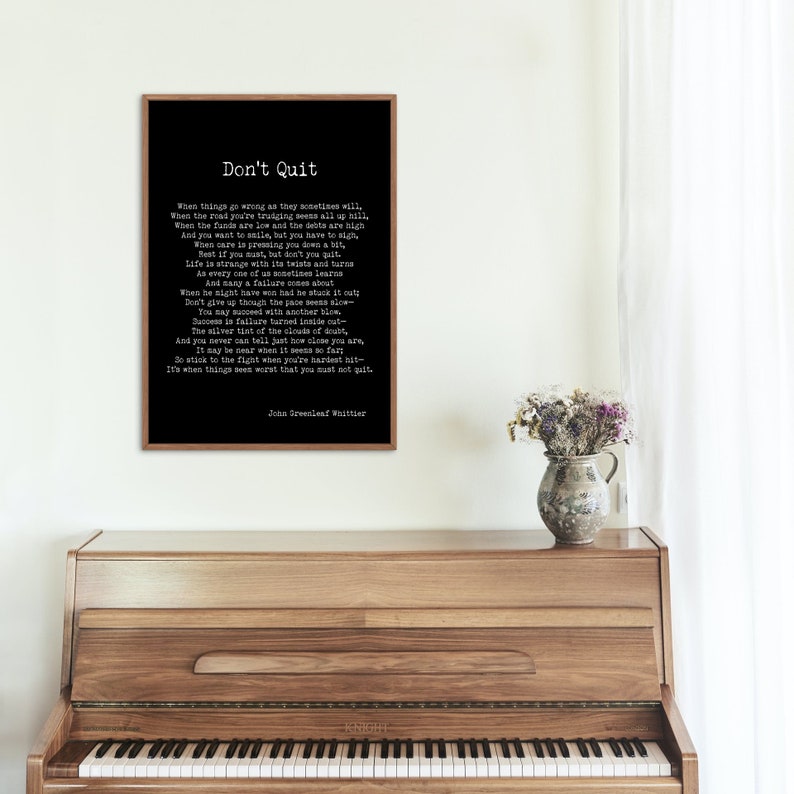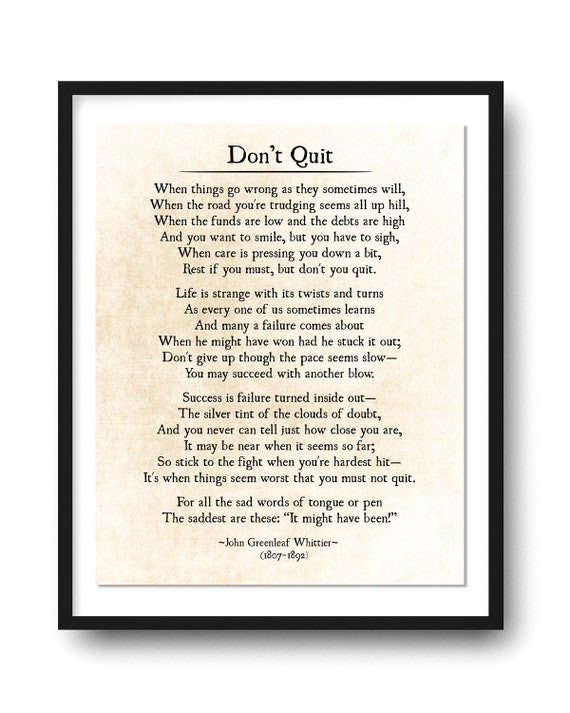
The year 1833 was a turning point for Whittier he resurrected his correspondence with Garrison, and the passionate abolitionist began to encourage the young Quaker to join his cause. The poem was erroneously attributed to Ethan Allen for nearly sixty years.ĭuring the 1830s, Whittier became interested in politics, but after losing a Congressional election in 1832, he suffered a nervous breakdown and returned home at age twenty-five. In 1833 he published The Song of the Vermonters, 1779, which he had anonymously inserted in The New England Magazine. Whittier became an out-spoken critic of President Andrew Jackson, and by 1830 was editor of the prominent New England Weekly Review in Hartford, Connecticut, the most influential Whig journal in New England. Shortly after a change in management, Garrison reassigned him as editor of the weekly American Manufacturer in Boston. Garrison gave Whittier the job of editor of the National Philanthropist, a Boston-based temperance weekly. He attended Haverhill Academy from 1827 to 1828 and completed a high school education in only two terms. Before his second term, he earned money to cover tuition by serving as a teacher in a one-room schoolhouse in what is now Merrimac, Massachusetts. To raise money to attend the school, Whittier became a shoemaker for a time, and a deal was made to pay part of his tuition with food from the family farm. Garrison as well as another local editor encouraged Whittier to attend the recently-opened Haverhill Academy. As a boy, it was discovered that Whittier was color-blind when he was unable to see a difference between ripe and unripe strawberries.


#Dont quit poem by john greenleaf whittier free
His sister sent his first poem, "The Exile's Departure", to the Newburyport Free Press without his permission and its editor, William Lloyd Garrison, published it on June 8, 1826. Whittier was first introduced to poetry by a teacher. Whittier was heavily influenced by the doctrines of his religion, particularly its stress on humanitarianism, compassion, and social responsibility. Although he received little formal education, he was an avid reader who studied his father’s six books on Quakerism until their teachings became the foundation of his ideology. Whittier himself was not cut out for hard farm labor and suffered from bad health and physical frailty his whole life. He grew up on the farm in a household with his parents, a brother and two sisters, a maternal aunt and paternal uncle, and a constant flow of visitors and hired hands for the farm. John Greenleaf Whittier was born to John and Abigail (Hussey) at their rural homestead near Haverhill, Massachusetts, on December 17, 1807. Highly regarded in his lifetime and for a period thereafter, he is now remembered for his poem Snow-Bound, and the words of the hymn Dear Lord and Father of Mankind, from his poem The Brewing of Soma, sung to music by Hubert Parry.

Whittier was strongly influenced by the Scottish poet Robert Burns. He is usually listed as one of the Fireside Poets. John Greenleaf Whittier was an influential American Quaker poet and ardent advocate of the abolition of slavery in the United States.


 0 kommentar(er)
0 kommentar(er)
